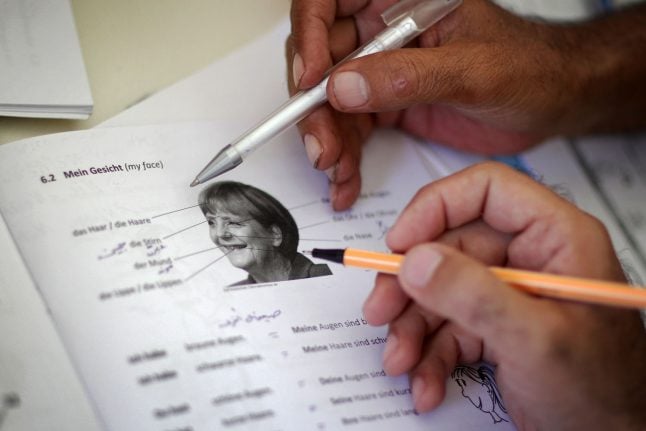A newly released study has shown 6.2 million people in Germany – just under eight percent of the total population – cannot read or write properly in German.
While far-right and anti-immigration parties may lay the blame at the feet of migrants and refugees, native speakers also struggle.
The study, completed by the Federal Ministry of Education and Research, found that 52.6 percent of the 6.2 million have German as their mother tongue.
The remaining 47.4 percent (2.9 million) have a migrant background and have learned another language before German. Just under half of those use German more often than their mother tongue despite the associated difficulties.
Literacy levels were determined by whether or not participants were able to understand coherent texts, even shorter ones.
Read: One in five German kids can't read properly when they leave school
A success?
While the figures may seem high, there has been an overall decrease in the number of people with low-level literacy living in Germany.
A similar study completed in 2011 found 7.5 million people with limited reading and writing skills, approximately 1.3 million more than in the current report.
Federal Education Minister Anja Karliczek (CDU) told DPA that the findings amounted to a “success for our education system”.

Image: DPA
A hindrance?
The lack of German language skills didn’t seem to be as much of a hindrance as it may seem. Two thirds of those with low literacy skills are gainfully employed.
One in five haven’t finished high school, while two in five have not gone onto further education.
The study is entitled ‘Living With Low Literacy’ and will be released publicly in Berlin this Tuesday. The study looked at 7,200 German-speaking adults between the ages of 18 and 64 and research took place in the summer of 2018.
German vocabulary
Living With Low Literacy – Leben mit geringer Literalität
mother tongue – Muttersprache
migration background – Migrationshintergrund
difficulties with writing – Schreibschwierigkeiten
We're aiming to help our readers improve their German by translating vocabulary from some of our news stories. Did you find this article useful? Do you have any suggestions? Let us know
p.p1 {margin: 0.0px 0.0px 0.0px 0.0px; font: 12.0px Helvetica; min-height: 14.0px}
p.p2 {margin: 0.0px 0.0px 0.0px 0.0px; font: 12.0px Helvetica}




 Please whitelist us to continue reading.
Please whitelist us to continue reading.
Member comments